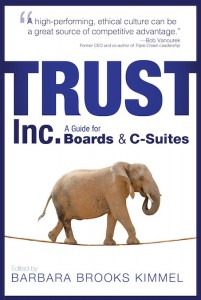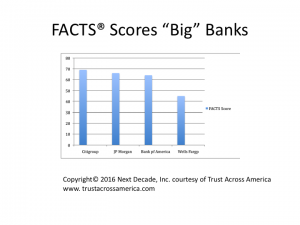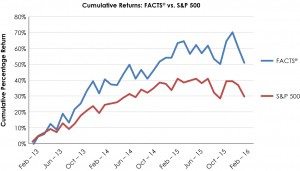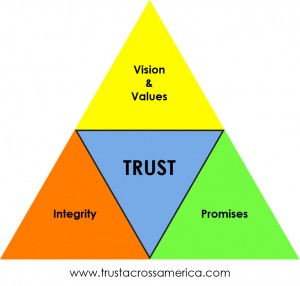In our ongoing monthly Tuning in to Trust & Ethics series on elevating organizational trust and ethics, we asked our Trust Alliance members to weigh in on the following question:
Many believe that the HR function plays an important role in building organizational trust and trustworthiness. Do you agree or disagree and why?
Deb Mills-Scofield helps companies create dynamic strategic plans to promote a business-wide innovation mindset.
HR builds trust in how they behave every single day - with each other, their peers and all employees. Share on X
Obviously, how HR deals with employees’ issues, complaints, and concerns conveys corporate culture. Confidences need to be kept, gossip discouraged (especially by not participating in it), and root causes addressed. People need to be held accountable. This applies equally, and perhaps even more importantly, to how HR interacts within their own organization and with their peers. Double standards are common, but to create sustainable trust, they are absolutely unacceptable. Behavior matters.”
Donna Boehme is an international authority in the field of compliance and ethics.
I have always regarded HR as the beating heart of an organization. Share on XThat’s because the mission and mandate of this critical function, as it’s name suggests, is all about a company’s people- and all aspects of the organizational cycle of their people, from hiring and on boarding/ orientation, to compensation, development and promotion; to retirement/ separation/discipline (as appropriate) of employees It’s obvious that organizations can only conduct business through their employees. Thus, the manner in which the HR department discharges its mission is absolutely critical to the building of organizational trust and an ethical culture. For this reason, experienced compliance and ethics professionals regard the HR function as a key partner in all aspects of their work. It’s my observation that how well Compliance and HR work together on the shared goals of strong ethical culture and organizational trust is the critical factor. Both functions need to work together to promote employees’ sense of “organizational justice” – probably the most important endeavor of their partnership.
Bob Whipple is a consultant who helps leaders build and maintain trust:
Without question the HR function has a lot to do with whether the culture will be one of high trust, but I think it works in a strange way. I think it is necessary but not sufficient.
If HR is not working with candor and transparency, then a culture of doubt will kindle that is hard to overcome. Share on X
But if HR shows the highest integrity and trustworthy behaviors, it will not be sufficient to create a high trust culture throughout the organization. Reason: I believe trust starts at the top of the organization and cascades throughout the various levels. The most significant factor influencing a culture of trust is the behaviors of the most senior leader. A problem leader at any level in the organization can thwart the culture, but a really great leader at the top will root out the problem and eliminate it. If there is ethical dry rot at any level, the trust will be snuffed out like a candle hit with a bucket of water.
And finally Holly Latty-Mann, a clinical psychologist offers the following advice on HR’s role in building a trustworthy organization:
1) When HR questions management’s decisions that negatively impact the rights of the workforce, they serve equally both management and staff, garnering trust.
2) When HR represents without bias expressed concerns of workforce members to management, trust deepens on all levels.
3) HR is transparent without bias regarding actions staff can take when systems aren’t currently in place to honor legitimate needs, and
4) HR doesn’t play favorites by making themselves the gatekeepers as to who gets what. Share on X
Trust building plays a vital role in the value system and subsequent long-term sustainability of any organization. It must not only be built into the cultural DNA, but must also be practiced and reinforced daily.
Hiring for trust, with the support of upper management should be just as important, if not more so than hiring for talent or skill. Share on X
The most progressive HR leaders will promote a culture of trust and assist in elevating it throughout the organization.
Barbara Brooks Kimmel is the CEO and Cofounder of Trust Across America-Trust Around the World whose mission is to help organizations build trust. Barbara also runs the world’s largest global Trust Alliance, is the editor of the award winning TRUST INC. book series and a Managing Member at FACTS® Asset Management, a NJ registered investment advisor. In 2012 was named one of “25 Women who are Changing the World” by Good Business International. Barbara holds a BA in International Affairs and an MBA.






Recent Comments